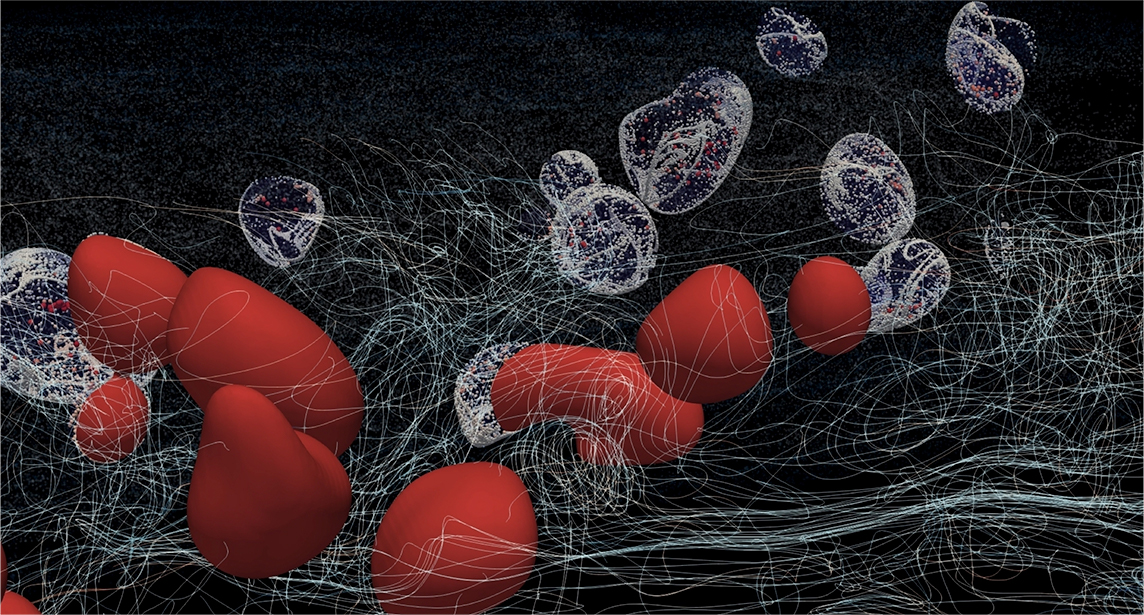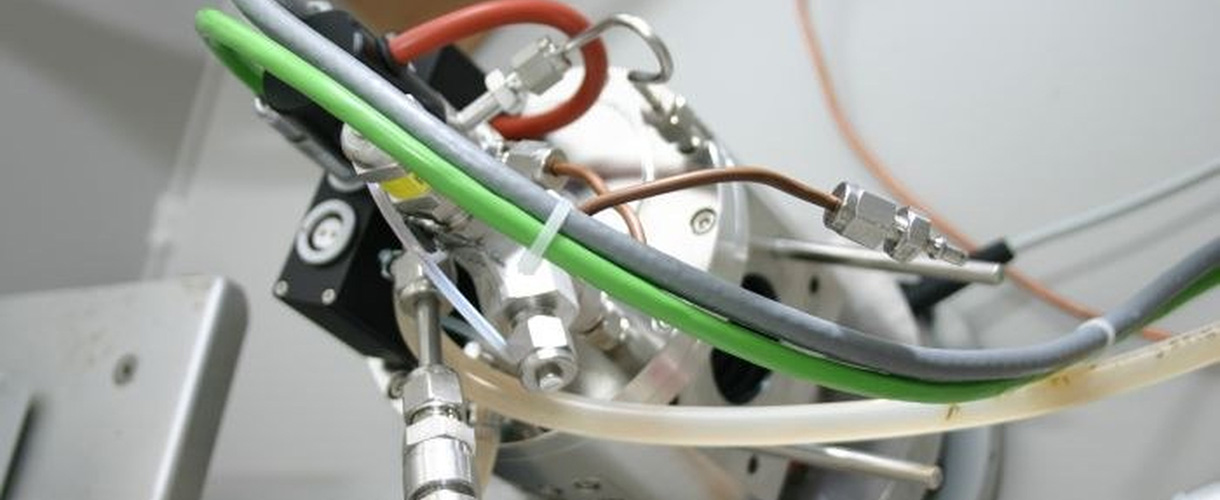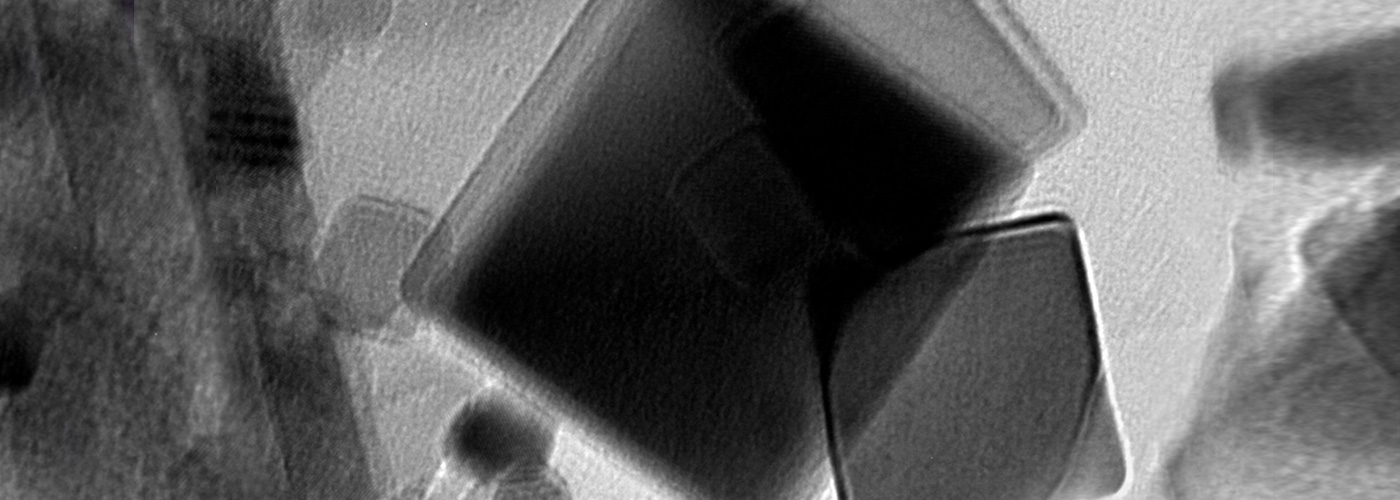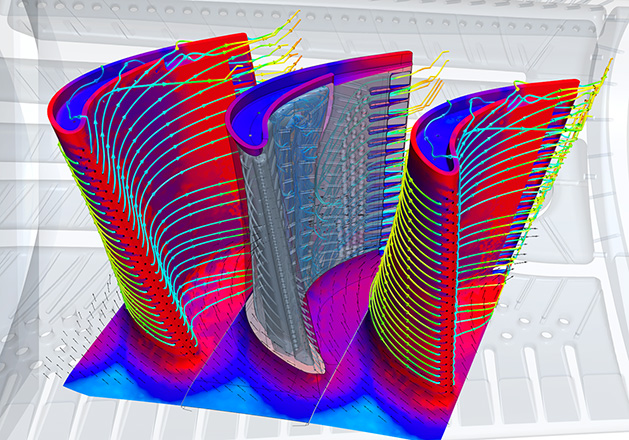Teaching activities offered by the PhD programme
Three different types of teaching activities are regularly carried out in the frame of the PhD programme:
(1) advanced courses specifically designed for the students of the EEES PhD Programme (organized by members of the PhD Board and/or Board of Experts)
(2) advanced course organized by international centers (e.g. CISM, the International Center of Mechanical Sciences – www.cism.it)
(3) seminars or workshops on specific topics in environmental and energy engineering science.
All these activities are summarized below and in the training project (progetto formativo) available HERE.
Training activities for the XLth (40th) cycle
- Crash courses offered by the PhD Board (academic year 2024/2025, to be held before September 30, 2025)
- Advanced measurements techniques for thermo-fluid dynamics (Instructor: Prof. L. Casarsa, 1 CFU – go to course description)
- Basic principles of environmental catalytic processes (Instructor: Prof. S. Colussi, 1 CFU – go to course description)
- Convective and diffusive transport in reactive flows (Instructor: Prof. P. Giannattasio, 1 CFU – go to course description)
- Decarbonization of energy intensive processes (Instructor: Dr. M. Danielis, 1 CFU – go to course description)
- Elements of hydrogen technology: Materials and applications (Instructor: G. Capurso, 1 CFU – go to course description)
- Alternative fuels for energy transition (Instructor: Prof. M. Boaro, 1 CFU – go to course description)
- Introduction to molecular modelling (Instructor: Prof. A. Melchior, 1 CFU – go to course description)
- Inverse problems for nanostructures (Instructor: Prof. A. Morassi, 1 CFU – go to course description)
- Numerical methods for differential equations (Instructor: Prof. A. Roccon, 1 CFU – go to course description)
- Oxidation of materials under critical conditions (Instructor: Dr. A. Lanzutti, 1 CFU – go to course description)
- Sustainable biomaterials for biomedical applications (Instructor: Dr. A. Rondinella, 1 CFU – go to course description)
- Variational principles in elasticity (Instructor: Prof. C. Davini, 1 CFU – go to course description)
- Water, Energy and Nutrient Recovery from IWC (Instructor: Dr. Matia Mainardis, 2.5 CFU – go to course description)
- Seminars on Computational multiphase fluid mechanics (Instructor: Prof. A. Soldati, 1.5 CFU, 12 hours)
- Seminars on Experimental multiphase fluid mechanics (Instructor: Prof. A. Soldati, 1 CFU, 8 hours)
- Seminars on Environmental applications of multiphase fluid mechanics (Instructor: Prof. A. Soldati, 1.25 CFU, 10 hours)
- Crash courses offered by other PhD programmes of the University of Udine
- At the following link: https://www.dmif.uniud.it/dottorato/offerta-didattica/ students can find the list of crash course offered by the Board of the PhD Course in Computer Science, Mathematics and Physics. Students can select one or more of these courses in addition to the crash courses offered by the PhD Board
- At the following link: https://phd.diegm.uniud.it/iie-training-activities/ students can find the list of crash course offered by the Board of the PhD Course in Industrial and Information Engineering. Students can select one or more of these courses in addition to the crash courses offered by the PhD Board
- Advanced courses offered by CISM or other centres/associations
- The full list of course offered by CISM in each academic year is available here: https://www.cism.it/en/activities/courses/#tab-advanced-courses
- Please, note that PhD students from the University of Udine can register free of charge (registration fee is waived).
- Students can also attend advanced/crash courses offered by scientific organisations other than CISM. Should a student wish to do so, he/she should inform the Coordinator and provide the name of the organizing scientific institution, the title of the course, when and where it will be held.
- Invited seminars offered by international experts from other academic institutions
- Several seminars will be organised over the year ensuring that all topics of interest for the PhD students are covered. Each seminar will be announced in due time (by e-mail).
- Workshop and simposia organized in Udine by the PhD Board
- These events will be announced in due time. Participation is optional.
Training activities for the XXXIXth (39th) cycle
- Crash courses offered by the PhD Board (academic year 2023/2024, to be held before September 30, 2024)
- Advanced measurements techniques for thermo-fluid dynamics (Instructor: Prof. L. Casarsa, 1 CFU – go to course description)
- Basic principles of environmental catalytic processes (Instructor: Prof. S. Colussi, 1 CFU – go to course description)
- Convective and diffusive transport in reactive flows (Instructor: Prof. P. Giannattasio, 1 CFU – go to course description)
- Decarbonization of energy intensive processes (Instructor: Dr. M. Danielis, 1 CFU – go to course description)
- Elements of hydrogen technology: Materials and applications (Instructor: G. Capurso, 1 CFU – go to course description)
- Fundamentals of catalytic processes (Instructor: Prof. M. Boaro, 1 CFU – go to course description)
- Introduction to molecular modelling (Instructor: Prof. A. Melchior, 1 CFU – go to course description)
- Inverse eigenvalue problems and applications (Instructor: Prof. A. Morassi, 1 CFU – go to course description)
- Numerical methods for differential equations (Instructor: Prof. A. Roccon, 1 CFU – go to course description)
- Oxidation of materials under critical conditions (Instructor: Dr. A. Lanzutti, 1 CFU – go to course description)
- Variational principles in elasticity (Instructor: Prof. C. Davini, 1 CFU – go to course description)
- Water, Energy and Nutrient Recovery from IWC (Instructor: Dr. Matia Mainardis, 2.5 CFU – go to course description)
- Seminars on Computational multiphase fluid mechanics (Instructor: Prof. A. Soldati, 1.5 CFU, 12 hours)
- Seminars on Experimental multiphase fluid mechanics (Instructor: Prof. A. Soldati, 1 CFU, 8 hours)
- Seminars on Environmental applications of multiphase fluid mechanics (Instructor: Prof. A. Soldati, 1.25 CFU, 10 hours)
- Crash courses offered by other PhD programmes of the University of Udine
- At the following link: https://www.dmif.uniud.it/dottorato/offerta-didattica/ students can find the list of crash course offered by the Board of the PhD Course in Computer Science, Mathematics and Physics. Students can select one or more of these courses in addition to the crash courses offered by the PhD Board
- Advanced courses offered by CISM or other centres/associations
- The full list of course offered by CISM in each academic year is available here: https://www.cism.it/en/activities/courses/#tab-advanced-courses
- Please, note that PhD students from the University of Udine can register free of charge (registration fee is waived).
- Students can also attend advanced/crash courses offered by scientific organisations other than CISM. Should a student wish to do so, he/she should inform the Coordinator and provide the name of the organizing scientific institution, the title of the course, when and where it will be held.
- Invited seminars offered by international experts from other academic institutions
- Several seminars will be organised over the year ensuring that all topics of interest for the PhD students are covered. Each seminar will be announced in due time (by e-mail).
- Workshop and simposia organized in Udine by the PhD Board
- These events will be announced in due time. Participation is optional.
Training activities for the XXXVIIIth (38th) cycle
- Crash courses offered by the PhD Board (academic year 2022/2023, to be held before September 30, 2023)
- Advanced measurements techniques for thermo-fluid dynamics (Instructor: Prof. L. Casarsa, 1 CFU – go to course description)
- Numerical methods for differential equations (Instructor: Prof. A. Roccon, 1 CFU – go to course description)
- Oxidation of materials under critical conditions (Instructor: Dr. A. Lanzutti, 1 CFU – go to course description)
- Theory and laboratory for wastewater characterization (Instructor: Dr. E. Aneggi, 1 CFU – go to course description)
- Introduction to molecular modelling (Instructor: Prof. A. Melchior, 1 CFU – go to course description)
- Energy and Nutrient Recovery from IWC – Part I (Instructor: Dr. M. Mainardis, 1 CFU – go to course description)
- Basic principles of environmental catalytic processes (Instructor: Prof. S. Colussi, 1 CFU – go to course description)
- Decarbonization of energy intensive processes (Instructor: Dr. M. Danielis, 1 CFU – go to course description)
- Seminars on Computational multiphase fluid mechanics (Instructor: Prof. A. Soldati, 1.5 CFU, 12 hours)
- Seminars on Experimental multiphase fluid mechanics (Instructor: Prof. A. Soldati, 1 CFU, 8 hours)
- Seminars on Environmental applications of multiphase fluid mechanics (Instructor: Prof. A. Soldati, 1.25 CFU, 10 hours)
- Crash courses offered by other PhD programmes of the University of Udine
- At the following link: https://www.dmif.uniud.it/dottorato/offerta-didattica/ students can find the list of crash course offered by the Board of the PhD Course in Computer Science, Mathematics and Physics. Students can select one or more of these courses in addition to the crash courses offered by the PhD Board
- Advanced courses offered by CISM or other centres/associations
- The full list of course offered by CISM in each academic year is available here: https://www.cism.it/en/activities/courses/#tab-advanced-courses
- Please, note that PhD students from the University of Udine can register free of charge (registration fee is waived).
- Students can also attend advanced/crash courses offered by scientific organisations other than CISM. Should a student wish to do so, he/she should inform the Coordinator and provide the name of the organizing scientific institution, the title of the course, when and where it will be held.
- Invited seminars offered by international experts from other academic institutions
- Several seminars will be organised over the year ensuring that all topics of interest for the PhD students are covered. Each seminar will be announced in due time (by e-mail).
- Workshop and simposia organized in Udine by the PhD Board
- These events will be announced in due time. Participation is optional.
Training activities for the XXXVIIth (37th) cycle
- Crash courses offered by the PhD Board (academic year 2021/2022, to be held before September 30, 2022)
- Convective and diffusive transport in reactive flows (Instructor: Prof. P. Giannattasio, 1 CFU – go to course description)
- Fundamentals of catalytic processes (Instructor: Prof. M. Boaro, 1 CFU – go to course description)
- Inverse eigenvalue problems and applications (Instructor: Prof. A. Morassi, 1 CFU – go to course description)
- Variational principles in elasticity (Instructor: Prof. C. Davini, 1 CFU – go to course description)
- Water, Energy and Nutrient Recovery from IWC (Instructor: Dr. Matia Mainardis, 2.5 CFU – go to course description)
- Elements of hydrogen technology: Materials and applications (Instructor: G. Capurso, 1 CFU – go to course description)
- Seminars on Computational multiphase fluid mechanics (Instructor: Prof. A. Soldati, 1.5 CFU, 12 hours)
- Seminars on Experimental multiphase fluid mechanics (Instructor: Prof. A. Soldati, 1 CFU, 8 hours)
- Seminars on Environmental applications of multiphase fluid mechanics (Instructor: Prof. A. Soldati, 1.25 CFU, 10 hours)
- Crash courses offered by the PhD Board (academic year 2022/2023, to be held before September 30, 2023)
- Advanced measurements techniques for thermo-fluid dynamics (Instructor: Prof. L. Casarsa, 1 CFU – go to course description)
- Numerical methods for differential equations (Instructor: Prof. C. Marchioli, 1 CFU – go to course description)
- Oxidation of materials under critical conditions (Instructor: Dr. A. Lanzutti, 1 CFU – go to course description)
- Theory and laboratory for wastewater characterization (Instructor: Dr. E. Aneggi, 1 CFU – go to course description)
- Introduction to molecular modelling (Instructor: Prof. A. Melchior, 1 CFU – go to course description)
- Water, Energy and Nutrient Recovery from IWC – Part I (Instructor: Dr. Matia Mainardis, 1 CFU – go to course description)
- Seminars on Computational multiphase fluid mechanics (Instructor: Prof. A. Soldati, 1.5 CFU, 12 hours)
- Seminars on Experimental multiphase fluid mechanics (Instructor: Prof. A. Soldati, 1 CFU, 8 hours)
- Seminars on Environmental applications of multiphase fluid mechanics (Instructor: Prof. A. Soldati, 1.25 CFU, 10 hours)
- Crash courses offered by other PhD programmes of the University of Udine
- At the following link: https://www.dmif.uniud.it/dottorato/offerta-didattica/ students can find the list of crash course offered by the Board of the PhD Course in Computer Science, Mathematics and Physics. Students can select one or more of these courses in addition to the crash courses offered by the PhD Board
- Advanced courses offered by CISM or other centres/associations
- The full list of course offered by CISM in each academic year is available here: https://www.cism.it/en/activities/courses/#tab-advanced-courses
- Please, note that PhD students from the University of Udine can register free of charge (registration fee is waived).
- Students can also attend advanced/crash courses offered by scientific organisations other than CISM. Should a student wish to do so, he/she should inform the Coordinator and provide the name of the organizing scientific institution, the title of the course, when and where it will be held.
- Invited seminars offered by international experts from other academic institutions
- Several seminars will be organised over the year ensuring that all topics of interest for the PhD students are covered. Each seminar will be announced in due time (by e-mail).
- Workshop and simposia organized in Udine by the PhD Board
- These events will be announced in due time. Participation is optional.
Training activities for the XXXVIth (36th) cycle
- Crash courses offered by the PhD Board (academic year 2020/2021, to be held before June 30, 2021)
- Advanced measurements techniques for thermo-fluid dynamics (Instructor: Prof. L. Casarsa, 1 CFU – go to course description)
- Numerical methods for differential equations (Instructor: Prof. C. Marchioli, 1 CFU – go to course description)
- Oxidation of materials under critical conditions (Instructor: Dr. A. Lanzutti, 1 CFU – go to course description)
- Theory and laboratory for wastewater characterization (Instructor: Dr. E. Aneggi, 1 CFU – go to course description)
- Introduction to molecular modelling (Instructor: Prof. A. Melchior, 1 CFU – go to course description)
- Seminars on Computational multiphase fluid mechanics (Instructor: Prof. A. Soldati, 1.5 CFU, 12 hours)
- Seminars on Experimental multiphase fluid mechanics (Instructor: Prof. A. Soldati, 1 CFU, 8 hours)
- Seminars on Environmental applications of multiphase fluid mechanics (Instructor: Prof. A. Soldati, 1.25 CFU, 10 hours)
- Crash courses offered by the PhD Board (academic year 2021/2022, to be held before June 30, 2022)
- Convective and diffusive transport in reactive flows (Instructor: Prof. P. Giannattasio, 1 CFU – go to course description)
- Fundamentals of catalytic processes (Instructor: Prof. M. Boaro, 1 CFU – go to course description)
- Inverse eigenvalue problems and applications (Instructor: Prof. A. Morassi, 1 CFU – go to course description)
- Variational principles in elasticity (Instructor: Prof. C. Davini, 1 CFU – go to course description)
- Nanoparticles in composite coatings (Instructor: Dr. M. Lekka, 1 CFU – go to course description)
- Seminars on Computational multiphase fluid mechanics (Instructor: Prof. A. Soldati, 1.5 CFU, 12 hours)
- Seminars on Experimental multiphase fluid mechanics (Instructor: Prof. A. Soldati, 1 CFU, 8 hours)
- Seminars on Environmental applications of multiphase fluid mechanics (Instructor: Prof. A. Soldati, 1.25 CFU, 10 hours)
- Crash courses offered by other PhD programmes of the University of Udine
- At the following link: https://www.dmif.uniud.it/dottorato/offerta-didattica/ students can find the list of crash course offered by the Board of the PhD Course in Computer Science, Mathematics and Physics. Students can select one or more of these courses in addition to the crash courses offered by the PhD Board
- Advanced courses offered by CISM or other centres/associations
- The full list of course offered by CISM in each academic year is available here: https://www.cism.it/en/activities/courses/#tab-advanced-courses
- Please, note that PhD students from the University of Udine can register free of charge (registration fee is waived).
- Students can also attend advanced/crash courses offered by scientific organisations other than CISM. Should a student wish to do so, he/she should inform the Coordinator and provide the name of the organizing scientific institution, the title of the course, when and where it will be held.
- Invited seminars offered by international experts from other academic institutions
- Several seminars will be organised over the year ensuring that all topics of interest for the PhD students are covered. Each seminar will be announced in due time (by e-mail).
- Workshop and simposia organized in Udine by the PhD Board
- These events will be announced in due time. Participation is optional.
- Crash courses offered by the PhD Board (academic year 2019/2020, to be held before June 30, 2020)
- Convective and diffusive transport in reactive flows (Instructor: Prof. P. Giannattasio, 1 CFU – go to course description)
- Fundamentals of catalytic processes (Instructor: Prof. M. Boaro, 1 CFU – go to course description)
- An introduction to the classical Calculus of Variations (Instructor: Prof. A. Morassi, 1 CFU – go to course description)
- Nanoparticles in Composite Coatings (Instructor: Dr. M. Lekka, 1 CFU – go to course description)
- Crash courses offered by the PhD Board (academic year 2020/2021, to be held before June 30, 2021)
- Advanced measurements techniques for thermo-fluid dynamics (Instructor: Prof. L. Casarsa, 1 CFU – go to course description)
- Numerical methods for differential equations (Instructor: Prof. C. Marchioli, 1 CFU – go to course description)
- Oxidation of materials under critical conditions (Instructor: Dr. A. Lanzutti, 1 CFU – go to course description)
- Theory and laboratory for wastewater characterization (Instructor: Dr. E. Aneggi, 1 CFU – go to course description)
- Introduction to molecular modelling (Instructor: Prof. A. Melchior, 1 CFU – go to course description)
- Crash courses offered by other PhD programmes of the University of Udine
- At the following link: https://www.dmif.uniud.it/dottorato/offerta-didattica/ students can find the list of crash course offered by the Board of the PhD Course in Computer Science, Mathematics and Physics. Students can select one or more of these courses in addition to the crash courses offered by the PhD Board
- Advanced courses offered by CISM or other centres/associations
- The full list of course offered by CISM in each academic year is available here: https://www.cism.it/en/activities/courses/#tab-advanced-courses
- Please, note that PhD students from the University of Udine can register free of charge (registration fee is waived).
- Students can also attend advanced/crash courses offered by scientific organisations other than CISM. Should a student wish to do so, he/she should inform the Coordinator and provide the name of the organizing scientific institution, the title of the course, when and where it will be held.
- Invited seminars offered by international experts from other academic institutions
- Several seminars will be organised over the year ensuring that all topics of interest for the PhD students are covered. Each seminar will be announced in due time (by e-mail).
- Workshop and simposia organized in Udine by the PhD Board
- These events will be announced in due time. Participation is optional.
- Crash courses offered by the PhD Board (academic year 2019/2020, to be held before June 30, 2020)
- These events will be announced in due time. Participation is optional.
Research activities carried out within the PhD programme
Intersectoral safety for disaster risk reduction and resilience (Local website – opens in new tab)
Description: The project studies the problem of reducing the risks of disaster affecting the physical and built environment adopting an intersectoral approach with particular regard to structures and critical infrastructures, network systems and services, energy production and transport systems and other systems or assets of particular value for the community. The aim is to deal in a scientific and rational way with all the phases of the disaster management cycle: prevision, prevention, response and recovery. The objective is to define effective, integrated and pro-active methods and strategies for assessing, managing and improving safety. The risk reduction has seen as an integral part of sustainable development and of the increasing of territorial resilience; the topic is part of the UNESCO Chair on Intersectoral Safety for Disaster Risk Reduction and Resilience and is closely related to and functional to the objectives set by the United Nations Agenda for Sustainable Development. (local website – opens on same page)
Advanced risk assessment for mould growth conditions and interstitial condensation in building envelopes (Local website – opens in new tab)
Description: The health and safety criticalities of building enclosures are mainly related to vapour migration and heat transfer. Residential, historic and public buildings that have not been properly designed, eventualy suffer from mould or rising dump. Advanced hygrothermal simulations of building envelopes could be used for the assessment of the risk of interstitial condensation and mould growth conditions, but they are relatively recent and not well known to technicians. The aim of this research activity is to find new applications and procedures to ensure better health, safety and comfort standards for the built environment.
Catalysts for reduction of particulate emissions assisted by NOx (Local website – opens in new tab)
Description: Removal of soot from diesel exhaust gas is a challenging topic. The emissions of diesel engines are known to be hazardous pollutants for human health. The research focuses on the development of new catalytic materials for the oxidation of particulate matter at low temperatures assisted by NOx. The attention is focused on identification of active species, definition of reaction mechanism, knowledge on the chemical properties of the catalyst components, influence of the contact type between catalyst and soot, influence of the operating cycles on the catalytic performances in order to find correlations between catalyst properties and catalytic activity.
Multiphase dispersed flows: Simulations and experiments (Local website – opens in new tab)
Description: Multiphase dispersed flows are common in a wide spectrum of engineering applications and environmental processes: examples include fluid transport in pipelines, filtration systems, pulp and paper making, drug delivery devices, pollutant dispersion. Aim of the research activities is to provide a multiscale characterization of multiphase flows by combining state-of-the-art numerical and experimental techniques. These are used to improve physical understanding of heat, mass and momentum transfer phenomena and to develope phenomenological predictive models.
Preferred background: Laurea or equivalent degree in Mechanical Engineering or Applied Physics.







